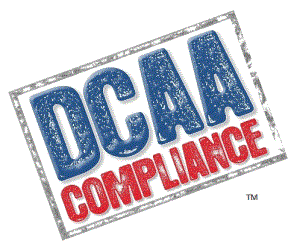One of the probably unforeseen outcomes of DCAA’s decision to spin off Chapter Seven of the Contract Audit Manual (CAM) into a new document SELECTED AREA OF COST GUIDEBOOK: FAR 31.205 COST PRINCIPLES is that it reminds us of some of the more interesting sections of the Contract Audit Manual.
And notice the clever way they seem to present their own thoughts as regulatory by linking their thoughts “Guidebook” to the actual rules “FAR 31.205 Cost Principles”.
Section 17 is lifted up from the CAM and only true regulatory or statutory reliance is the “reasonable and prudent” standard. In other words, DCAA applies the reasonable and prudent standard when they cannot find a law, legal decision, or regulation that supports their decision and decide that the contractor’s actions were not those typical to another contractor in a similar position. This assertion is made by DCAA Auditors whom, the vast majority, have never made a business decision. They have never sweated a payroll, created a set of books, invoiced, or other reasonable and prudent activities.
This aside, the section asserts DCAA’s right to question as unallowable contractor costs associated with reviewing indirect costs.
To your amazement, I have a few problems with this positon:
- The adjective “Extraordinary” is in itself, extraordinary and subjective. It calls on DCAA auditors to determine if the review of indirect costs are routine or “extraordinary”.
Of course DCAA tries to help an auditor with this:
This extraordinary effort is often the result of the contractor’s earlier negligence in establishing, maintaining, and/or implementing an adequate system of internal control.
When the circumstances cited above are encountered and the contractor is incurring or is expected to incur significant costs, the auditor should notify the contractor that the costs associated with such extraordinary reviews of unsettled overhead costs are considered to be unreasonable and will be questioned under FAR 31.201-3, Determining reasonableness. The reasons to be cited are:
- 1. The costs are not of a type generally recognized as ordinary and necessary for the conduct of the contractor’s business or the performance of a contract. The costs are duplicative of costs incurred for the same purpose in prior periods. The Government has already reimbursed the contractor for the costs of preparing billings and claims for reimbursement. The fact that this task was not adequately accomplished does not entitle the contractor to additional reimbursement.
- The costs are the result of the contractor’s failure to follow the requirements of generally accepted sound business practices and contract terms.
- The costs result from actions taken which were not those of a prudent businessman in the circumstances, considering his responsibilities to the owners of the business, his employees, his customers, the Government, and the public at large.
A lot more words they employ here call for professional judgement: negligence, significant, failure, and my favorite: duplicative.
Let us remember that DCAA Auditors are awarded professional judgment by an act of Congress. According to their own report to Congress, only about half of their professional judgements are supported and that is with the majority of contractors not contesting DCAA proposed decisions.
These words are loaded terms without definition. The “guidebook” provides no guidance to define the line between ordinary and extraordinary or any other loaded terms. The DFARS 252.242.-7006 provides some guidance on defining significant but this is not referenced in the guidebook.
2. And speaking of the DFAR regulation, how does this section match up with the requirement for Management Review and/or Internal Audit. When do these required activities become “extraordinary”?
3. Duplicative? Did DCAA forget that good internal controls are often duplicative by nature? When does double checking payroll cross from ordinary to extraordinary? When did taking advantage of the time spent preparing your incurred cost submission to check your costs become unreasonable and not prudent? Maybe DCAA is just trying to create work and success for themselves by discouraging contractors from double checking their work?
I am sorry, but I just have to wonder about this. Many people would argue that double entry is duplicative. Accounting is built on cross checking and rechecking, at least good accounting is.
DCAA, when you spend tax dollars to create something new, such as this guidebook, please create something new.
